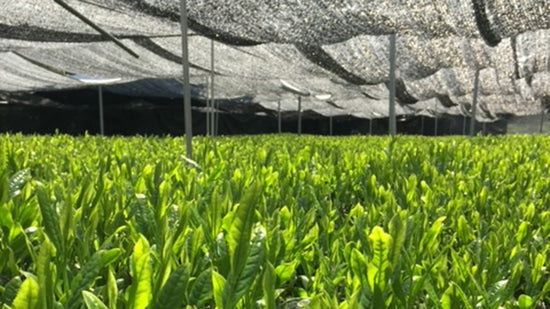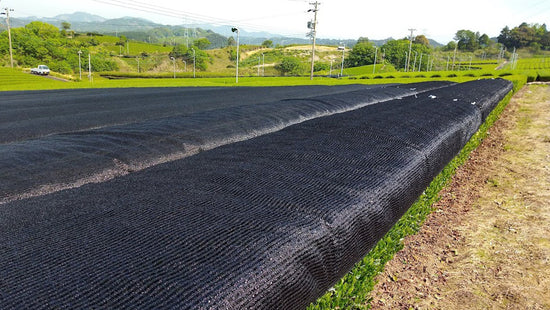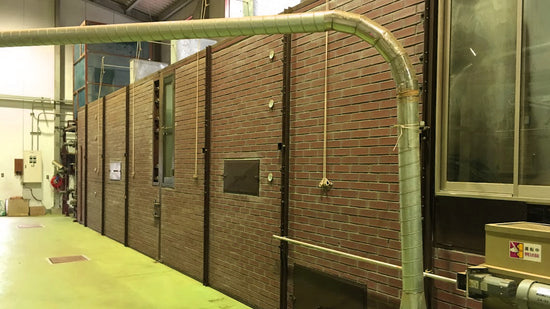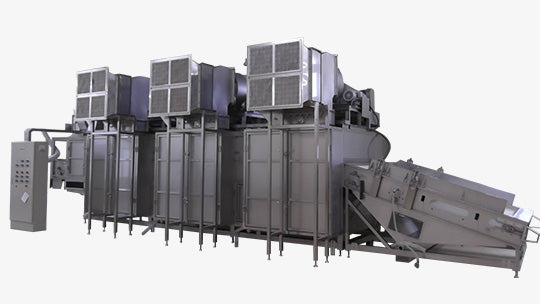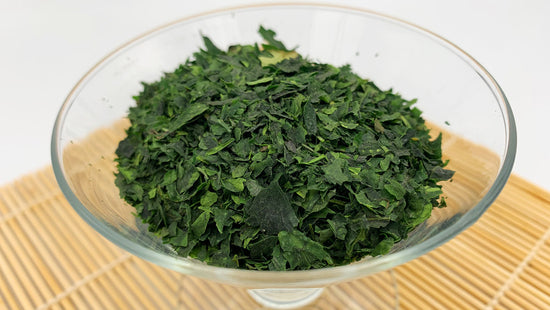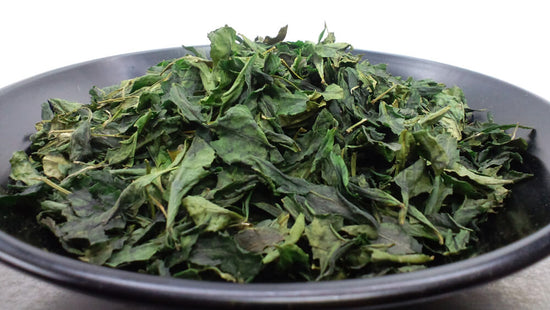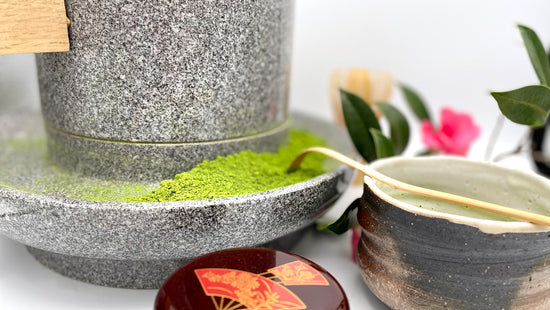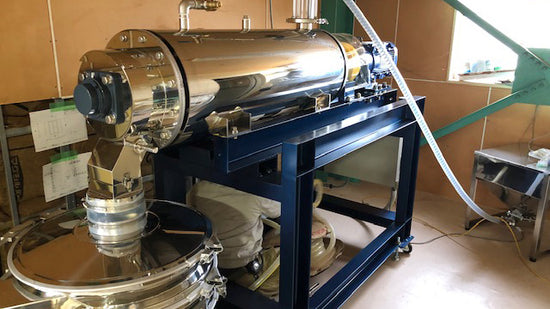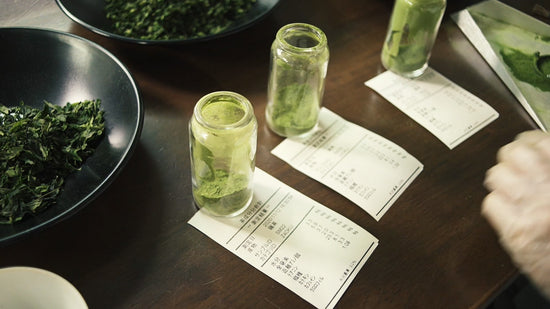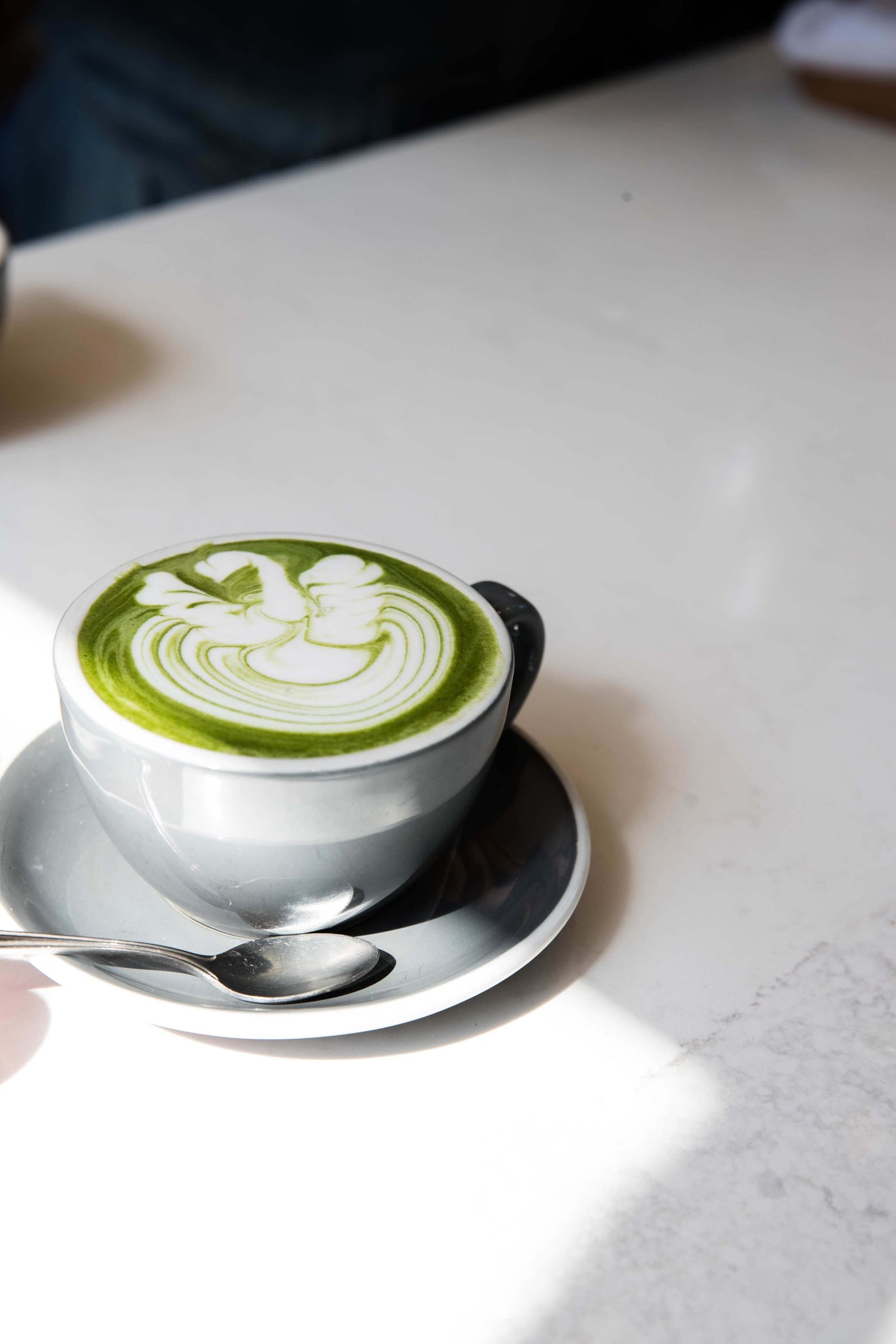Hattori Tea Farm Cultivates Exclusively Authentic Matcha
There are four things that we insist on to provide you with top-quality authentic matcha. Compare our organic methods to see which one is best.
1.Tea Covering Method and Duration
2.Using a Tencha Furnace to Dry the Tea Leaves
3.Removal of Tea Stems and Veins
4.Grinding Method
Single Origin Matcha: Our Commitment to Pure Taste
We are located in Shizuoka Prefecture, where 97% of the varieties are Yabukita. Our farm also grew a lot of it, so naturally, we tried to make matcha from yabukita ingredients. It was bitter and not very tasty. We quickly analyzed the components and found that the amino acid value was low and the catechin value was high. This means that this variety, while suitable for sencha, is not the best type for powdered matcha.
Most of the matcha in the world is blended to disguise the taste. We refuse to cheat—we only offer single-origin matcha. We replant Yabukita every year with other varieties that are better suited for matcha and gyokuro.
Matcha production
Unique Teas with Character
If you purchase from us, we can analyze the composition of the matcha you are currently using. For more information, please contact us.


